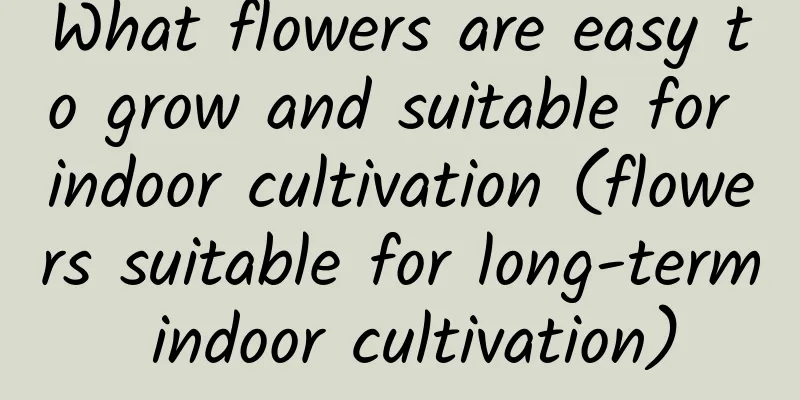The correct way to change the pot and soil of green radish

|
Green ivy is a common indoor foliage plant. It is loved by flower lovers because of its evergreen leaves, clear patterns, and strong air purification ability. However, during the process of potted maintenance, the pot and soil usually need to be changed once every 1-2 years to maintain the vigorous growth of the green radish. So what is the correct way to change the pot and soil of the green radish? Let’s learn more about it below. 1. Time to change pots Spring and autumn are the seasons when green radish grows most vigorously. Changing pots and soil at this time can help the plants resume growth quickly. If the plant is dormant in winter, the impact of changing pots and soil will be smaller. Summer is hot and humid, and the green radish is easily infected by diseases and pests after repotting. Therefore, you should try to avoid repotting and changing the soil in summer. 2. Pot soil preparation Choose a pot that is slightly larger than the original pot and make sure it has adequate drainage holes to help avoid root rot. The soil should be breathable, loose, and nutrient-rich mixed soil, such as a mixture of leaf mold, sand and garden soil. 3. Remove the pot Stop watering 3 days before repotting to allow the soil to separate from the pot wall and make it easier to remove the pot. When removing the plant from the pot, gently tap the bottom of the pot to help loosen the soil, then take out the green radish along with the soil ball. 4. Root treatment After removing the pot, be sure to remove the old soil around the roots of the green radish, especially the soil that has become hardened. Also check whether the roots are rotten or have pests and diseases, and prune off unhealthy roots in time. After pruning, you can soak the roots in wood ash water or carbendazim solution for disinfection, or wash them and let them air dry. 5. Planting in pots Place a layer of pebbles or broken pottery in the bottom of the new pot to improve drainage, then add new soil. Place the green radish in the center of the pot. After adjusting the position, fill new soil around the root zone and compact it lightly to ensure that the roots are in good contact with the soil. 6. Post-maintenance After repotting, place the green radish in a cool and ventilated place, water it appropriately, and keep the soil slightly moist. Avoid strong direct sunlight to avoid affecting the recovery of the plant. In addition, do not apply fertilizer immediately after repotting. Wait until new leaves grow before applying fertilizer, otherwise it will easily burn the roots. In general, you need to choose the right time to repot and change the soil of the green radish, then follow the correct steps, and pay attention to the maintenance after repotting. This will ensure that the green radish grows healthily in the new potting soil environment.
|
<<: The correct way to repot Phalaenopsis
>>: How many days does it take for mustard greens to germinate?
Recommend
How often should I change the water for water lilies?
Water lily is a perennial aquatic herb belonging ...
What soil to choose for growing Clivia
Cultivating Clivia with Leaf Mulch Leaf mold is a...
What are the benefits of spraying foliar fertilizer on fruits and vegetables (when is the best time to spray foliar fertilizer on vegetables)
The role of foliar fertilizer spraying Spraying f...
He has been raising a money tree for 10 years, and it has grown thicker than his thigh. How does he raise it?
Money tree maintenance precautions The money tree...
When does the spring jasmine bloom?
1. When does it bloom? Forsythia usually blooms a...
Can activated carbon be used to grow succulents?
Can activated carbon be used to grow succulents? ...
Cultivation methods and precautions for potted bougainvillea
1. Breeding methods 1. Sunlight It likes high tem...
How to choose Dendrobium candidum and how to eat it after buying it
1. How to choose 1. Appearance: When buying Dendr...
Oleander cultivation methods and precautions
Oleander is a particularly easy plant to grow and...
Which Clivia is easy to grow into a group of orchids (with cultivation methods and precautions)
1. Which type of orchid is easy to grow in groups...
How to grow shiitake mushrooms
1. Preparation before sowing Choose oily wood, su...
Can cherry seeds be used to grow cherries?
1. Can it be planted? Cherry seeds can be used to...
What to do if the sword is too long
Causes of Lean Growth Spring, autumn and early su...
How to Fertilize Flowers
Top dressing and base fertilizer. base fertilizer...
How to take care of newly bought Lithops
1. Inspection After buying Lithops home, first gi...









